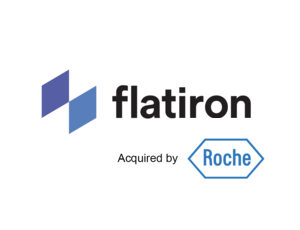Google Health and Fake News
Posted by | Michael Ratcliffe
Being a potential major disrupter to one of the largest sectors of the economy is not smooth sailing for Google Health
Google Health clearly has an issue. The mainstream media has picked up on its work with the massive health network Ascension and its patient data, misinterpreted it and spun it into a picture of potential abuse. But here is the truth:
- Yes, Google has been working with Ascension’s 50 million patient records through Project Nightingale without telling patients.
- Yes, it has been working with other large healthcare networks such as the Mayo Clinic to leverage patient data.
- No, there have been no reports of abuse of this privilege and no reports of Google planning to use personal data outside the confines of its new healthcare tool.
 While the press reports have focused exclusively on Google, they typically neglect to point out that there are key individuals in every hospital with access to sensitive personal data on their patients. Anyone with such access must conform to strict data security guidelines. We understand that all 150 Googlers on the Ascension project were vetted by Ascension and agreed to work within the same rules. However, Google should have been more sensitive to the fact that their access to this data might be misinterpreted, especially in light of their and other Silicon Valley firm’s reputation for exploiting personal data acquired in other business activities. Google’s failure to do this left the door open for journalists to sensationalize their access to Ascension’s data.
While the press reports have focused exclusively on Google, they typically neglect to point out that there are key individuals in every hospital with access to sensitive personal data on their patients. Anyone with such access must conform to strict data security guidelines. We understand that all 150 Googlers on the Ascension project were vetted by Ascension and agreed to work within the same rules. However, Google should have been more sensitive to the fact that their access to this data might be misinterpreted, especially in light of their and other Silicon Valley firm’s reputation for exploiting personal data acquired in other business activities. Google’s failure to do this left the door open for journalists to sensationalize their access to Ascension’s data.
From a competitive standpoint, one has to accept that mass onslaught by the press could potentially slow down Google’s move into the healthcare market and be to the benefit of many large healthcare firms who, we know, are watching Google’s moves with serious concerns.
What is Google Health’s Experience with Healthcare Data to Date?
The healthcare market has been openly trying to change from its old model of fee-for-service to value-based healthcare since around 2000. To do this, access to data and analytics is critical for understanding which treatments produce the best outcomes. This is no simple feat considering the sheer magnitude of the U.S. healthcare system which represents 18% of the U.S. GDP and is bigger than the national economy of every country on the planet except for the U.S., China and Germany. It is also highly fragmented and part of the issue is how to interconnect health data across different providers systems and to do this one needs personal data, like name and birth date.
Back in 2008, Google and other hi-tech companies like Microsoft looked at getting into organizing medical data, but quickly withdrew realizing it was too early and very complex. Six years later, Google became involved in health data for a second time when two Googlers left to start the cancer specialty electronic medical record (EMR) company, Flatiron.
 Google and Roche were key in funding Flatiron and after four successful years in 2018 Roche bought Google’s $140M stake for $1.9B. In those four years, none of the 2.4M patients in Flatiron’s data bases ever complained about Google’s ownership. However, Google’s involvement in the technology used by Flatiron was limited as it used Amazon’s not Google’s Cloud service to host its databases. Still in 2017, one year before it sold its share to Roche, it filed a number of patents around building its own EMR solution. This implies that Google had used its experience with Flatiron to identify key unmet needs around existing EMRs and, hence, decided to build a better solution itself for the whole of the healthcare system, not just for oncologists.
Google and Roche were key in funding Flatiron and after four successful years in 2018 Roche bought Google’s $140M stake for $1.9B. In those four years, none of the 2.4M patients in Flatiron’s data bases ever complained about Google’s ownership. However, Google’s involvement in the technology used by Flatiron was limited as it used Amazon’s not Google’s Cloud service to host its databases. Still in 2017, one year before it sold its share to Roche, it filed a number of patents around building its own EMR solution. This implies that Google had used its experience with Flatiron to identify key unmet needs around existing EMRs and, hence, decided to build a better solution itself for the whole of the healthcare system, not just for oncologists.
Google’s next and fourth step into the world of healthcare data was the now very public relationship with Ascension and the use of patient records to help design a new integration to EMR data which it calls a clinical decision tool. Flatiron has already pioneered the use of leading-edge AI tools, to collect and curate patient-level data into its databanks. Google can bring additional hi-tech tools like allowing doctors and nurses to speak their notes directly into a handheld device or computer using Digital Scribe which it has developed through a joint venture with Stanford Medical. Add in mobile monitoring data for specific conditions through FitBit which it bought in 2018 for $2.1B as well as any of the disease-specific initiatives it is piloting through it Verily subsidiary—making for an interesting combination.
Google Health is looking for this new tool to act as an advisor to help identify patient-level issues that need to be addressed, including drug misuse, possible second opinions by specialists, or additional diagnostics. It is not planning to use it to target patients with ads for drugs or selling sensitive data on which patient has what condition as the mainstream media would have you believe.
How Google Health’s Access to Patient Data Could Positively Impact U.S. Healthcare
The key point is that the current EMR vendors are not providing this high-level, user-friendly access to patients’ healthcare records because our healthcare system is so fragmented. This was also why Flatiron has been so successful. The Wall Street Journal’s podcast reported that Google has already approached both leading EMR vendors, Epic and Cerner, to collaborate with it and share their data. Not surprisingly, both turned Google down as they would both have seen this hi-tech behemoth as a serious competitive threat. They don’t collaborate with each other, why would they collaborate with Google? However, the U.S. healthcare market desperately needs some organization to step up and take the lead and link the U.S.’s disparate healthcare data sets together. It needs an organization that can take an agnostic stance and collect, organize and analyze data across different health systems as the U.S. health system is so fragmented, so siloed and has so many issues around interoperability and standardization.
This will still leave many key questions on the table, such as what is Google Health’s timing, what will be the detailed functionality of this tool and will it cover acute data from hospitals, non-acute data from clinics and long-term care, as well as personal data from FitBit and other mobile devices. What is clear is that the first thing that Google needs to do is become far more transparent about its intentions. It needs to educate consumers and the media on what it is really doing, and what its goals are. One thing is for sure and that is if Google continues to move ahead with this, it will be a major disrupter of one of the most massive markets on the planet, but in a positive, not negative way.
Tags: Competitive Intelligence, Competitive Strategy, Data, Digital Transformation, Healthcare & Life Sciences, Mergers & Acquisition, Population Health



















